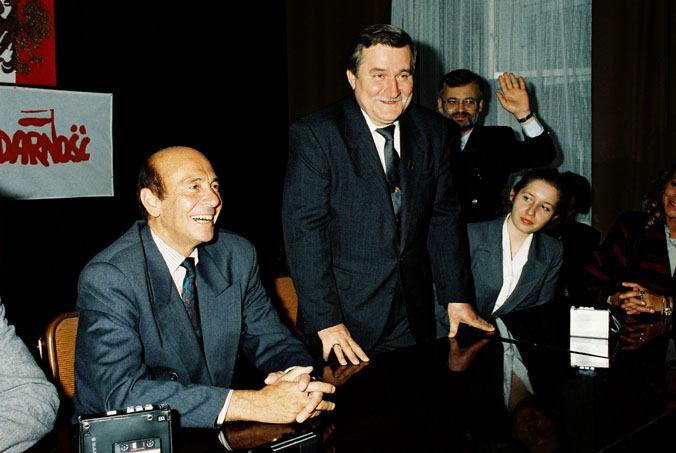Download NATO’s broadcast-quality video content free of charge

Log in
NATO MULTIMEDIA ACCOUNT
Access NATO’s broadcast-quality video content free of charge

Check your inbox and enter verification code
You have successfully created your account
From now on you can download videos from our website
Subscribe to our newsletter
If you would also like to subscribe to the newsletter and receive our latest updates, click on the button below.
Enter the email address you registered with and we will send you a code to reset your password.
Didn't receive a code? Send new Code
The password must be at least 12 characters long, no spaces, include upper/lowercase letters, numbers and symbols.
Your password has been updated
Click the button to return to the page you were on and log in with your new password.
The June 1989 elections held in Poland are an important historical milestone that helped trigger the end of the Cold War. They were the first in a string of momentous events that signaled the beginning of the end of communist rule, first in Poland and then across Eastern Europe as former Soviet bloc countries each took their first steps toward democratic transition.
To commemorate the 25th anniversary of these historic elections, the Polish Delegation to NATO submitted a formal request to the NATO Archives in early 2014 for the declassification and public disclosure of NATO documents related to these decisive moments in Poland. Working with representatives of the Archives of the Polish Ministry of Foreign Affairs, the NATO Archives identified a wide range of documents that provide valuable context to the Alliance’s perspective concerning the events before, during, and after the 1989 elections in Poland. The NATO Archives then collaborated with the national representatives on the Archives Committee and other authorities to successfully obtain approval for the disclosure of these documents.
The collection of disclosed documents contains records of the meetings of the North Atlantic Council (both formal and private), divisional correspondence, military assessments and the reports from national embassies in Poland submitted to NATO. Read individually, each of these documents provides a specific component analysis of a drastically changing political situation in Poland. When read as a collection, these documents offer insight into how the information relayed to the NATO about the developments in Poland helped shape Alliance decision-making at this most crucial historical moment. For example, the reports from the embassies of France, Germany, Italy, the United Kingdom and the United States each describe the changing political developments at ground-level in Poland from their respective national perspectives. The divisional correspondence added informed commentary and outlooks to advise the Private Office of the NATO Secretary General about how best to consider developments in Poland such as the new government formed by Tadeusz Mazowiecki, the first non-communist prime minister in Eastern Europe in more than 40 years. Finally, the records of the meetings of the North Atlantic Council show how the information was considered at the highest political levels, and how those discussions led to the development of a new relationship between Poland and the Alliance.

Visit by NATO Secretary General Manfred Wörner to Gdansk, Poland - September 1990
To mark the public disclosure of these documents and their importance to the recent history of Poland, the NATO Archives and the Polish Delegation to NATO will host an event this spring to be held in the NATO HQ Press Hall. The event will feature an exhibition that will present the events in Poland covered by the documents (1987-1991) alongside the NATO framework of the 1990 London Summit, which can be understood as the Alliance’s response to the changes that were underway in Poland and Eastern Europe. The newly disclosed documents featuring reports of Secretary General Manfred Wörner’s visit to Poland in September 1990 followed by the verbatim Council record of newly elected Polish President Lech Walesa’s visit to NATO in 1991 thus take on greater significance in this context as each represent political milestones for Poland in its first steps toward integration into the Euro-Atlantic community.

